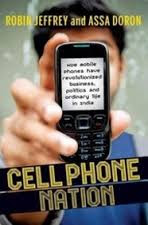
Bisweshwor Prasad Koirala, or BPK, was an internationalist and statesman with whom Nepal’s quest for liberal democracy began during the atrocious Rana rule. He was a maverick and never followed any existing half-baked political trend in Nepal. He embraced broader world views and kept striving to make Nepal a liberal democracy.
The monarchy was not a just ruling system for him, he maintained his struggle to replace it with democracy and succeeded to an extent in making a reasonable transition. Though things didn’t take shape ideally, once the Panchayati pattern was abolished. The other old ranks of those earlier democratic movements lost the much required vigour to carry forward desirable democratic pursuits.
BPK grew up in colonised India and shared great concern for its pathetic political status. He was a voracious reader of progressive texts and a writer of high literary sensibility. He had strong leaning towards socialistic ideas during his university days in Banaras Hindu University (BHU). He read Marx/Lenin and had taken up with the fine spirit of communist ideology.
But the personal appeal of Gandhi and the Indian Congress’ people-centric policies during the independence movement drew him closer. BHU was then a major centre of socialists in the Congress. There, he came in close contact with Acharya Narendra Dev, Ram Manohar Lohiya and Jaya Prakash Narayan.
He was sent to Indian jails on many occasions for actively speaking in favour of India’s independence from British rule. He had sensed the vitality of circumstance that could make the Ranas weaker. For this, he fought against the British. His approach broadly favoured the betterment of the entire South Asian region.
Later, as a young law practitioner, he worked for labourers in north Bihar and again spent time in jail. In those days, Indian jails were filled with high moralists. So, he was on good terms with the leading figures of Indian politics—Nehru and Rajendra Prasad, among them.
Back home during the last years of Ranas rule, he succeeded in establishing a very weak democratic system, which was working as the monarchy’s puppet. His first ministerial stint as Home Minister brought him embarrassment from various quarters, following the shooting of a few protestors by security officers in Kathmandu.
The struggle became more difficult once king Mahendra succeeded the throne in 1955. Mahendra was firm in his resolve to destroy democratic changes but BPK was not easily defeatable. By 1959, the king was forced to call a general election—this was unprecedented. The Nepali Congress won the election and BPK became Prime Minister.
But the king was wary of BP’s growing popularity at home and abroad. By the end of 1960, a coup took place (planned by the king) and BPK was sent to jail under the pressure of landed aristocrats. He was destined to struggle, but surprisingly, his brother Matrika Prasad Koirala sided with the monarchy and served as ambassador to the US. During that testing time, BPK’s personal fate was at stake but he was well connected in India and in other parts of the world.
King Mahendra knew the limit of his acts but the hardship stayed as the ‘rule of game’ against BPK and other dissenting figures. In his latter days in exile and spearheading the flame of real democracy in Nepal, BPK appeared as independent as he was always, irrespective of all pressure.
He was a tough administrator, an able diplomat and a leader who could handle adversity with courage and clear conviction. His unflinching determination for democracy did not waver with his ailing health, and hostility from king Mahendra.
Despite that, he maintained his persona and the decency of the democratic movement. His diplomatic instinct was unquestionable. He proved on many occasions that a stable leadership can rescue a nation from internal loopholes at crucial international junctures.
His refusal to VK Menon’s non-courteous demand to receive Nehru in the US, which would’ve implied that Nepal was India’s client state, could be counted as one of those astute moments. It was also not without some sound reason that he termed Nehru’s interference in Nepal’s internal affairs (beyond a point), besides the monarchy and the country’s landed aristocracy, as major hindrances for the upliftment of the country.
BPK was a respected name in India at that time, and is, even today. It was a major misfortune for Nepal that BPK couldn’t cope with his failing health and died prematurely in 1982, eight years before the country attained the remarkable landmark of a constitutional monarchy.
His younger brother, Girija Prasad Koirala, who emerged as a strong centrist and served the country many times, lacked BPK’s integrity altogether. During his time, the hope for real democracy was strengthened, albeit it proved short-lived in the course of time.
Now, with the Maoists working like monarchs, trying with all possible efforts to disfigure Nepal’s conventional outlook, it’s high time the country followed the broad path of BPK instead of getting terrorised by the current stock of dubious radicals.
-Atul K Thakur
Email:summertickets@gmail.com
(Published in The Kathmandu Post,on March31,2013)

.jpg)






